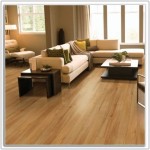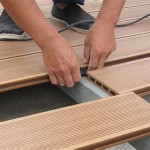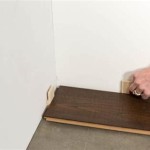Granite Flooring: Pros and Cons
Granite flooring is a popular choice for homeowners seeking durability, beauty, and elegance. Its natural stone composition and wide range of colors and patterns make it a versatile option for various design styles. However, like any other flooring material, granite has its own set of advantages and disadvantages. This article will explore the pros and cons of granite flooring, providing a comprehensive understanding of its characteristics and suitability for different applications.
Pros of Granite Flooring
Granite flooring boasts a number of desirable qualities that make it a compelling choice for homeowners:
Durability and Longevity
One of the most significant advantages of granite flooring is its exceptional durability. Granite is a naturally hard and dense stone, making it highly resistant to scratches, dents, and wear. Its resilience ensures that it can withstand high traffic areas and heavy furniture without showing signs of damage easily. Granite flooring can last for decades with proper maintenance, making it a long-term investment for your home.
Heat Resistance
Granite is an excellent heat-resistant material, making it ideal for kitchens and other areas prone to high temperatures. It does not easily crack or warp under extreme heat, ensuring its stability and longevity in demanding environments. This heat resistance also makes granite suitable for areas with radiant heating systems.
Water Resistance
Granite is a natural stone that is inherently resistant to water damage. Its non-porous surface prevents water from seeping in, making it an excellent choice for bathrooms, kitchens, and other areas with high moisture levels. This water resistance also contributes to the overall durability and longevity of granite flooring.
Aesthetic Appeal
Granite flooring offers a unique and timeless aesthetic that enhances the overall look and feel of any space. Its natural patterns and colors create a sense of sophistication and elegance, adding character to any room. From classic black and white to vibrant shades of red and green, the wide range of granite types provides endless possibilities for design customization.
Easy to Clean
Granite flooring is relatively easy to clean and maintain. Its non-porous surface prevents dirt and grime from penetrating deeply, making it simple to sweep, vacuum, or mop. Regular cleaning with a mild soap and water solution is sufficient to keep the surface clean and maintain its shine. However, it's important to avoid harsh chemicals or abrasive cleaners that can damage the stone.
Cons of Granite Flooring
While granite flooring offers numerous advantages, it also comes with certain drawbacks that homeowners should consider:
Cost
Granite flooring is a relatively expensive option compared to other common flooring materials like tile or laminate. The cost of granite varies depending on the type, quality, and installation fees. However, its durability and longevity make it a worthwhile investment in the long run.
Coldness
Granite is a natural stone that can feel cold to the touch, especially in colder climates. This coldness can be mitigated by installing radiant heating or using area rugs. However, it's a factor to consider if you prefer warmer flooring options.
Porosity
While granite is generally considered non-porous, some types can be more porous than others. This porosity can result in staining if spills are not cleaned up promptly. Applying a sealant to granite flooring can help reduce its porosity and improve its stain resistance.
Installation Complexity
Installing granite flooring requires skilled labor and can be a complex process. The heavy weight of granite slabs demands careful handling and professional installation to ensure optimal results. This complexity can contribute to the overall cost of installing granite flooring.
Potential for Cracking
Although durable, granite can crack under extreme pressure or sudden temperature changes. This risk can be minimized by choosing high-quality granite and ensuring proper installation to prevent stress on the stone. However, it's essential to be aware of the potential for cracking and take necessary precautions.
Conclusion
Granite flooring is a highly durable and aesthetically pleasing option for homeowners seeking a long-lasting flooring solution. Its durability, heat resistance, water resistance, and aesthetic appeal make it suitable for various applications. However, its cost, coldness, porosity, installation complexity, and potential for cracking are factors to consider before making a decision. By carefully weighing the pros and cons, homeowners can determine if granite flooring is the right choice for their specific needs and budget.

The Pros And Cons Of Granite Floor Tiles 2024 Today S Homeowner

The Pros And Cons Of Granite Flooring Floor Coverings International

Granite Flooring In Kitchen Pros Cons Revealed Euromarble

Stone Flooring Pros Cons Tile Urban Customs

Granite Flooring Singapore Pros Cons Soon Bee Huat

Which Is Better Granite Or Marble Flooring Skytouch Ceramics
.webp?strip=all)
Which Is Better Granite Or Marble Flooring Skytouch Ceramics

Floor Tiles Quartz Stone Vs Marble Pros Cons

The Pros And Cons Of Granite Flooring Why Is Popular

Granite Flooring A Stylish And Durable Choice
Related Posts








